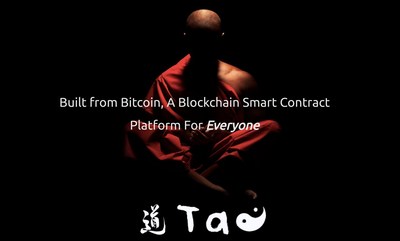When news broke last month that the ASCAP is partnering with France’s SACEM and the U.K.’s PRS For Music to develop a prototype metadata-matching system utilizing blockchain, many blockchain proponents celebrated the move as validation of their claims for the technology’s future role in the music business. But the announcement also raised the troubling possibility that blockchain-based approaches to solving the industry’s notorious data problems are already fragmenting into distinct and discrete implementations of the technology, which could end up simply recreating the current fractured data landscape on distributed ledgers.
 In undertaking their own effort, with no clear indication of how widely any resulting database would be shared with other industry stakeholders, ASCAP, SACEM, and PRS, will be working outside two other major multi-stakeholder blockchain-related data initiatives, to say nothing of the growing number of smaller efforts being bootstrapped by entrepreneurs.
In undertaking their own effort, with no clear indication of how widely any resulting database would be shared with other industry stakeholders, ASCAP, SACEM, and PRS, will be working outside two other major multi-stakeholder blockchain-related data initiatives, to say nothing of the growing number of smaller efforts being bootstrapped by entrepreneurs.
The Open Music Initiative, spearheaded by the Berklee College of Music’s Institute for Creative Entrepreneurship, is seeking to promulgate a series of API specs that will enable interoperability among disparate music datasets. Although OMI does not intend to create its own database of music rights information, on a blockchain or anywhere else, it does anticipate that some of the solutions utilizing its APIs will be blockchain-based. It’s members include a long list of industry stakeholders, including SACEM, but not ASCAP or PRS.
The dotBlockchain Music project, spearheaded by PledgeMusic co-founder Benji Rogers, has partnered with Canadian performing rights organization SOCAN, CD Baby, FUGA, and SongTrust, all of whom apart from FUGA are also participants in OMI, as it attempts to develop a new, blockchain-based music rights ecosystem starting with a metadata standard it calls Minimum Viable Data.
Numerous entrepreneurial efforts to develop a blockchain-based music data and royalty payment system have also sprung up, from Mycelia to Tao Network to token.FM, all based on bespoke implementations of blockchain technology. In perhaps the most unexpected move to date, last week Spotify announced the acquisition of Mediachain, the VC-funded startup that was developing a universal media metadata system utilizing blockchain. While Spotify’s intentions are not entirely clear — Mediachain’s technology will remain open-source but its principals will join Spotify — the deal indicates that interest in blockchain is coming from the demand side of the music rights ledger as well as the supply side.
Despite all that activity, however, OMI co-founder Panos Panay says he’s not worried about the potential for conflicts or fragmentation.
“I think [the ASCAP/SACEM, PRS project] is a good thing,” Panay told Rightstech.com. “I don’t view these things as competitive at all. Innovation is a relay race, and sometimes you have to take the baton from others.”
Panay is also heartened by Spotify’s acquisition of Mediachain, both of which are members of OMI.
“There really hasn’t been a ton of forums to enable this sort of rubbing of elbows between startups and bigger companies,” Panay said. “Part of our objective [with OMI] is to bring these companies together. We’re actively encouraging these sorts of connections.”
In Panay’s view, all the activity can only help attract more investment into the rights-tech space, leading to more innovation.
“This is not an industry that has attracted a lot of interest from VCs, or seen a lot of successful exits,” he said. “The complexity of music rights, historically, has thwarted investment. So I think the more deals there are, the more activity you see around the efforts to solve that complexity, the more investment you can attract .”
He also thinks it’s far too early to be worrying about blockchain fragmentation.
“We’re just at the beginning of this,” he said. “I think [blockchain] technology is about where the commercial internet was in 1989, when it was just getting started, or maybe the very early 90s. The applications and implications of blockchain are huge, but you want to make sure people don’t get too far ahead of themselves.”
To that end, OMI is not likely to mandate the use of blockchain in its first API spec, which it plans to release at the end of the month or in early June, although “we will encourage it,” Panay said. “This technology is still in its very early days.”
 date to $1.5 million.
date to $1.5 million.
 In undertaking their own effort, with no clear indication of how widely any resulting database would be shared with other industry stakeholders, ASCAP, SACEM, and PRS, will be working outside two other major multi-stakeholder blockchain-related data initiatives, to say nothing of the growing number of smaller efforts being bootstrapped by entrepreneurs.
In undertaking their own effort, with no clear indication of how widely any resulting database would be shared with other industry stakeholders, ASCAP, SACEM, and PRS, will be working outside two other major multi-stakeholder blockchain-related data initiatives, to say nothing of the growing number of smaller efforts being bootstrapped by entrepreneurs.






